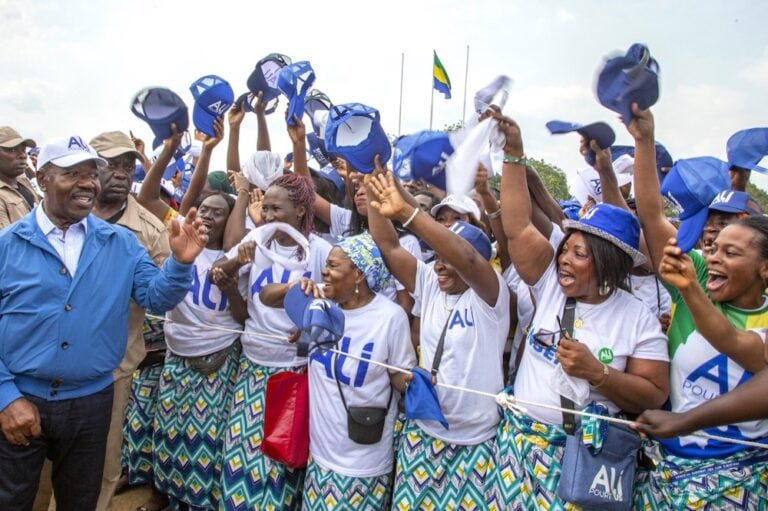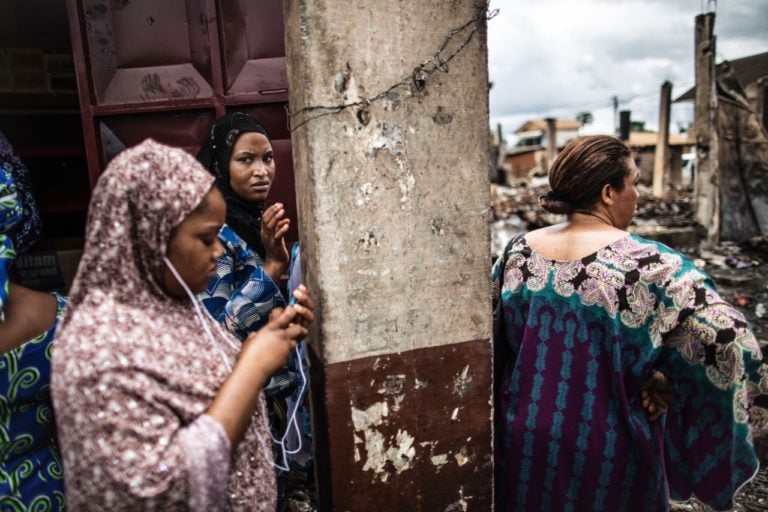RSF is extremely worried about attacks on the media since authorities announced the victory of Ali Bongo in recent presidential elections.
(RSF/IFEX) – Reporters Without Borders is extremely worried about the impact on the media of a wave of violence and unrest in Gabon that began when the authorities announced on 3 September 2009 that Ali Bongo, the late president’s son, was the winner of last Sunday’s presidential election. Journalists have been threatened or beaten and the signals of some TV stations have been cut.
“Journalists seemed to be able to work fairly freely on voting day but that changed between the vote count and the announcement of the results,” Reporters Without Borders said. “The media are there to cover the election and its outcome, not to be hostages of the rivalry between the various candidates. As soon as the media are prevented from working properly, there ceases to be any guarantee that the election has been free or fair.”
A Radio-Télévision Nazareth crew was physically attacked outside the entrance to the national electoral commission in Libreville on 3 September by opposition supporters reacting to the announcement of Ali Bongo’s victory. Accusing the RTN journalists of being “pro-Ali,” the opposition supporters roughed them up and broke their camera. An Agence France-Presse crew meanwhile narrowly escaped being attacked in the Libreville district of Plein Ciel and a France 3 crew was stoned.
Reporter Patrick Bibang of Radio Africa No.1 was roughed up at around 11 p.m. (local time) on 2 September by participants in a large opposition demonstration as he was trying to make his way through the crowd to talk to Mba Obame, Pierre Mamboundou and other opposition leaders who were there.
Five masked gunmen sprayed the transmitter of satellite TV station Go Africa with automatic gunfire on the night of 1 September as it was trying to fill the gap left when the signal of TV+, a station owned by opposition candidate André Mba Obame, was cut by the authorities on election day on the grounds that it “misused archive images” in a programme about the late President Omar Bongo Ondimba.
Telephone texting was suspended on 2 September by the Telecommunications Regulation Agency (ARTEL) after well-known figures (and journalists) reported receiving SMS messages containing death threats. An AFP journalist told Reporters Without Borders he had received dozens of death threats by telephone. SMS messages can also be used to send election results and calls for protests.
The Paris-based Africa 24 TV station broadcast a report on 1 September that its crew had been forced to leave the country by the Gabonese authorities. The authorities have denied this.
Reporters Without Borders issued a press release two days before the election voicing concern that the authorities would use “all available means to keep news and information under tight control.”
According to the results released on 3 September by the interior ministry, Ali Bongo was elected president with 141,952 votes (41.7 per cent). The runners-up were André Mba Obame with 88,028 votes (25.9 per cent) and Pierre Mamboundou with 85,797 votes (25.2 per cent).


